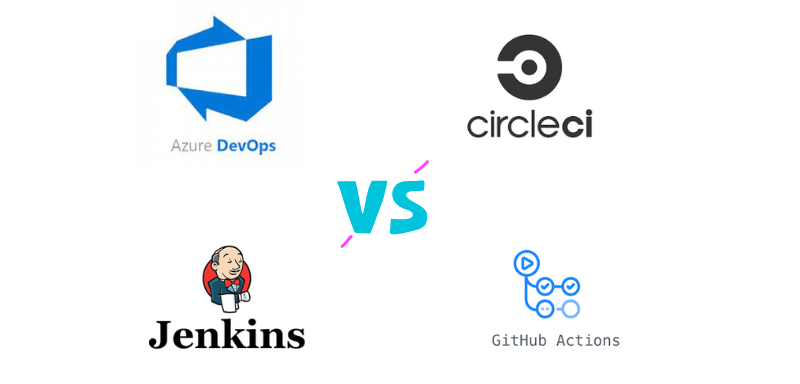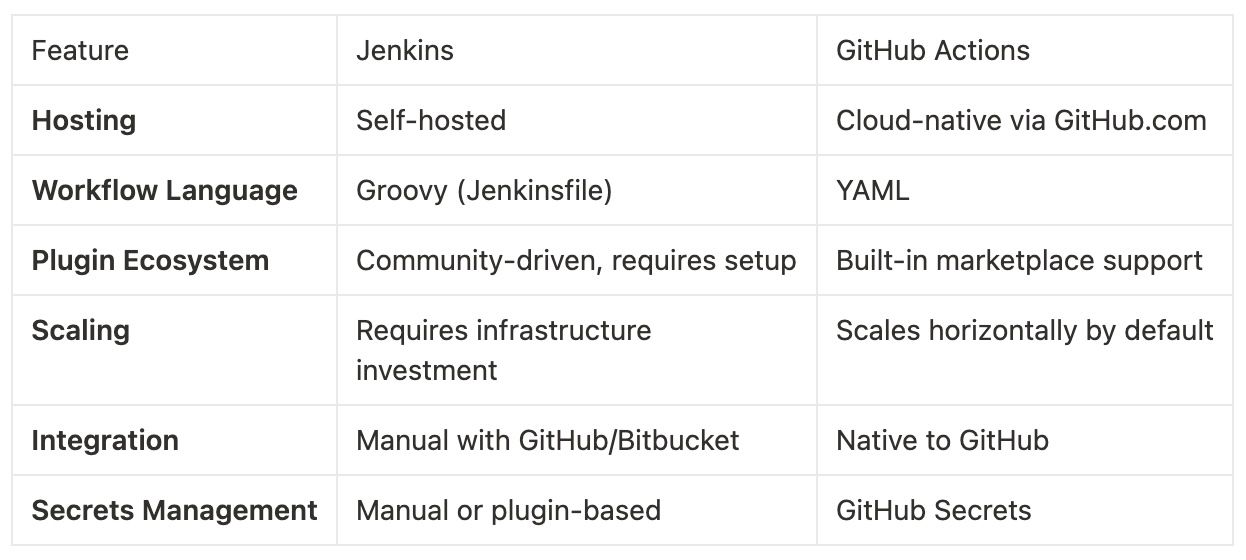Enterprise Guide: Migrating from Jenkins to GitHub Actions at Scale
🔍 Key Takeaways
- Jenkins pipelines are deeply ingrained in enterprise workflows but increasingly outdated.
- GitHub Actions offers scalable, cloud-native CI/CD tightly integrated into the GitHub ecosystem.
- Migrating thousands of Jenkins pipelines is time-intensive — but now automatable.
- Generative AI agents like Devin can read internal docs and reliably convert pipelines at scale.
- Enterprises can cut multi-year migration efforts down to a few months.

🏁 Why Migrate: Jenkins vs. GitHub Actions
Jenkins was designed for a pre-container, on-prem world. While extensible, it now struggles with scale, cloud integration, and modern SDLC practices.
In contrast, GitHub Actions, released in 2019, is a SaaS-native CI/CD system that’s integrated directly into GitHub — making it easier to manage workflows and infrastructure as code.
Here’s a quick comparison:

⚠️ Common Challenges in Migrating Jenkins Pipelines
Many large organizations want to move to GitHub Actions but hit roadblocks, including:
- Thousands of Jenkinsfiles across legacy repositories
- Tight coupling to Jenkins plugins or Groovy scripts
- Unclear documentation or tribal knowledge of how jobs work
- Differences in environment setup between Jenkins agents and GitHub runners
- Manual rebuild effort is slow — ~30 minutes per pipeline
🎯 Example: Jenkins to GitHub Actions Pipeline Conversion
A Jenkins pipeline with Slack notifications might look like this:
Jenkinsfile
pipeline {
agent any
environment {
SLACK_CHANNEL = '#ci'
}
stages {
stage('Checkout') {
steps {
checkout scm
}
}
stage('Build') {
steps {
echo 'Building the project...'
}
}
stage('Test') {
steps {
echo 'Running tests...'
}
}
}
post {
success {
slackSend(
channel: "${env.SLACK_CHANNEL}",
message: "✅ Jenkins build succeeded: ${env.JOB_NAME} #${env.BUILD_NUMBER}"
)
}
failure {
slackSend(
channel: "${env.SLACK_CHANNEL}",
message: "❌ Jenkins build failed: ${env.JOB_NAME} #${env.BUILD_NUMBER}"
)
}
}
}GitHub Actions Equivalent
name: CI Pipeline
on: [push]
jobs:
build:
runs-on: ubuntu-latest
steps:
- name: Checkout
uses: actions/checkout@v4
- name: Build
run: echo "Building the project..."
- name: Test
run: echo "Running tests..."
- name: Notify Slack (Success)
if: success()
uses: your-org/slack-notifier-action@v1
with:
webhook_url: ${{ secrets.SLACK_WEBHOOK }}
message: "✅ GitHub build succeeded on `${{ github.ref }}` (#${{ github.run_number }}) by ${{ github.actor }}"
- name: Notify Slack (Failure)
if: failure()
uses: your-org/slack-notifier-action@v1
with:
webhook_url: ${{ secrets.SLACK_WEBHOOK }}
message: "❌ GitHub build failed on `${{ github.ref }}` (#${{ github.run_number }}) by ${{ github.actor }}"While this is manageable for one repository, multiplying this effort across 10,000+ repos becomes a daunting manual project.
🤖 Accelerating Migration with AI Agents like Devin
Tools like Devin are changing the landscape of CI/CD modernization. Devin is a generative AI agent that runs inside your secure environment, and can:
- Read internal documentation and Jenkinsfile variations
- Convert pipelines to GitHub Actions syntax
- Replace custom Jenkins plugins with Actions or APIs
- Test and validate the converted workflows
This allows organizations to automate what was previously a slow, hands-on migration. A project once scoped for years can now be completed in months.
🛡️ Secure, Context-Aware DevOps Automation
Devin operates within your internal network, ensuring no data or code leaves your infrastructure. Key advantages include:
- Full access to internal tools (e.g., Confluence, internal GitHub/GitLab)
- No exposure of secrets to external SaaS tools
- Secure integration with enterprise IAM and policies
📈 DevOps, Transformed
Generative AI is redefining DevOps delivery — enabling teams to:
- Unlock automation across stale or legacy infrastructure
- Migrate CI/CD workflows at a fraction of the cost and time
- Drive faster innovation by offloading repetitive build/config work
By moving from Jenkins to GitHub Actions with the help of AI, teams gain flexibility, speed, and modern scalability — all without rewriting pipelines from scratch.
💡 Want to learn more?
If you’re managing a Jenkins-to-GitHub migration at scale, contact us to see how Devin can accelerate the journey.